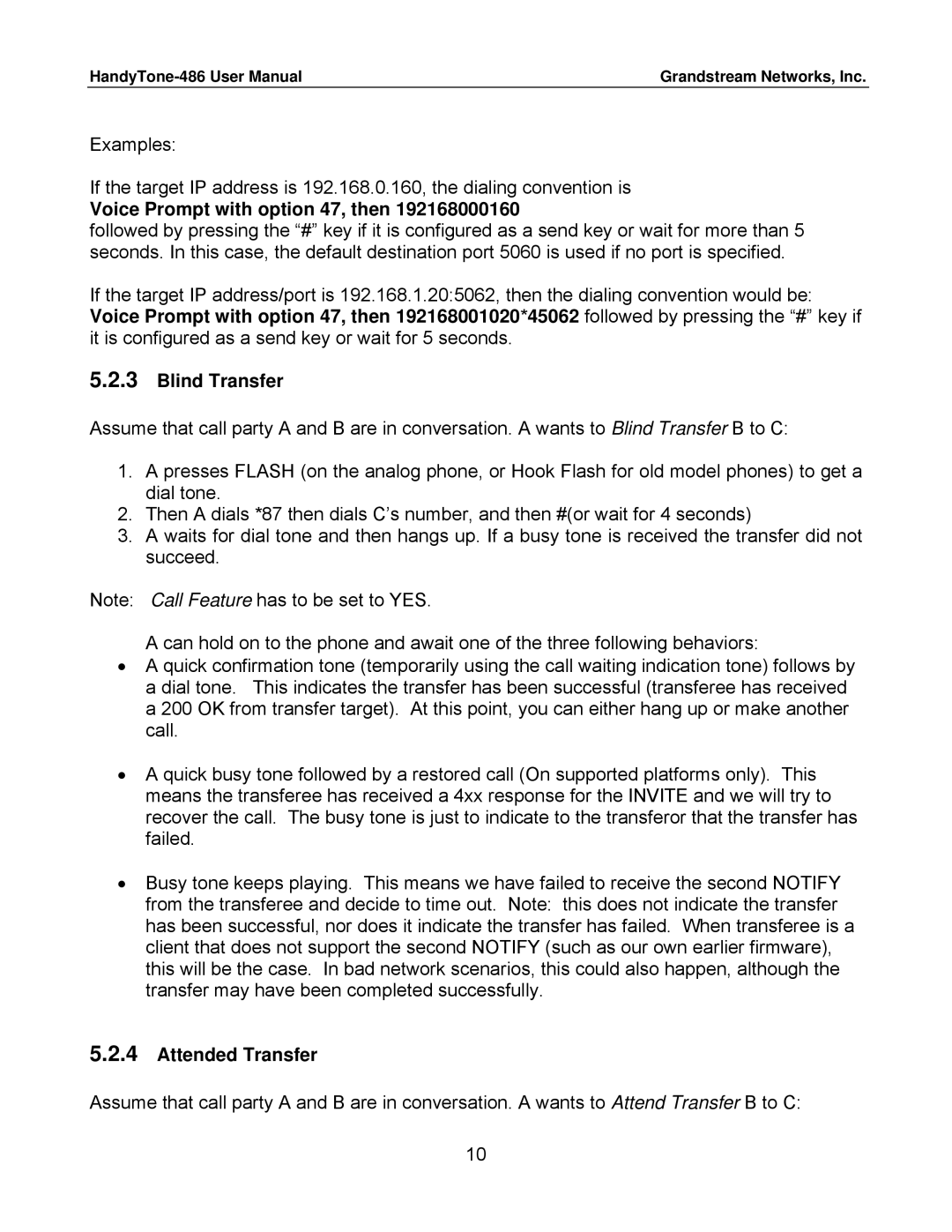Grandstream Networks, Inc. |
Examples:
If the target IP address is 192.168.0.160, the dialing convention is
Voice Prompt with option 47, then 192168000160
followed by pressing the “#” key if it is configured as a send key or wait for more than 5 seconds. In this case, the default destination port 5060 is used if no port is specified.
If the target IP address/port is 192.168.1.20:5062, then the dialing convention would be: Voice Prompt with option 47, then 192168001020*45062 followed by pressing the “#” key if it is configured as a send key or wait for 5 seconds.
5.2.3Blind Transfer
Assume that call party A and B are in conversation. A wants to Blind Transfer B to C:
1.A presses FLASH (on the analog phone, or Hook Flash for old model phones) to get a dial tone.
2.Then A dials *87 then dials C’s number, and then #(or wait for 4 seconds)
3.A waits for dial tone and then hangs up. If a busy tone is received the transfer did not succeed.
Note: Call Feature has to be set to YES.
A can hold on to the phone and await one of the three following behaviors:
•A quick confirmation tone (temporarily using the call waiting indication tone) follows by a dial tone. This indicates the transfer has been successful (transferee has received a 200 OK from transfer target). At this point, you can either hang up or make another call.
•A quick busy tone followed by a restored call (On supported platforms only). This means the transferee has received a 4xx response for the INVITE and we will try to recover the call. The busy tone is just to indicate to the transferor that the transfer has failed.
•Busy tone keeps playing. This means we have failed to receive the second NOTIFY from the transferee and decide to time out. Note: this does not indicate the transfer has been successful, nor does it indicate the transfer has failed. When transferee is a client that does not support the second NOTIFY (such as our own earlier firmware), this will be the case. In bad network scenarios, this could also happen, although the transfer may have been completed successfully.
5.2.4Attended Transfer
Assume that call party A and B are in conversation. A wants to Attend Transfer B to C:
10
